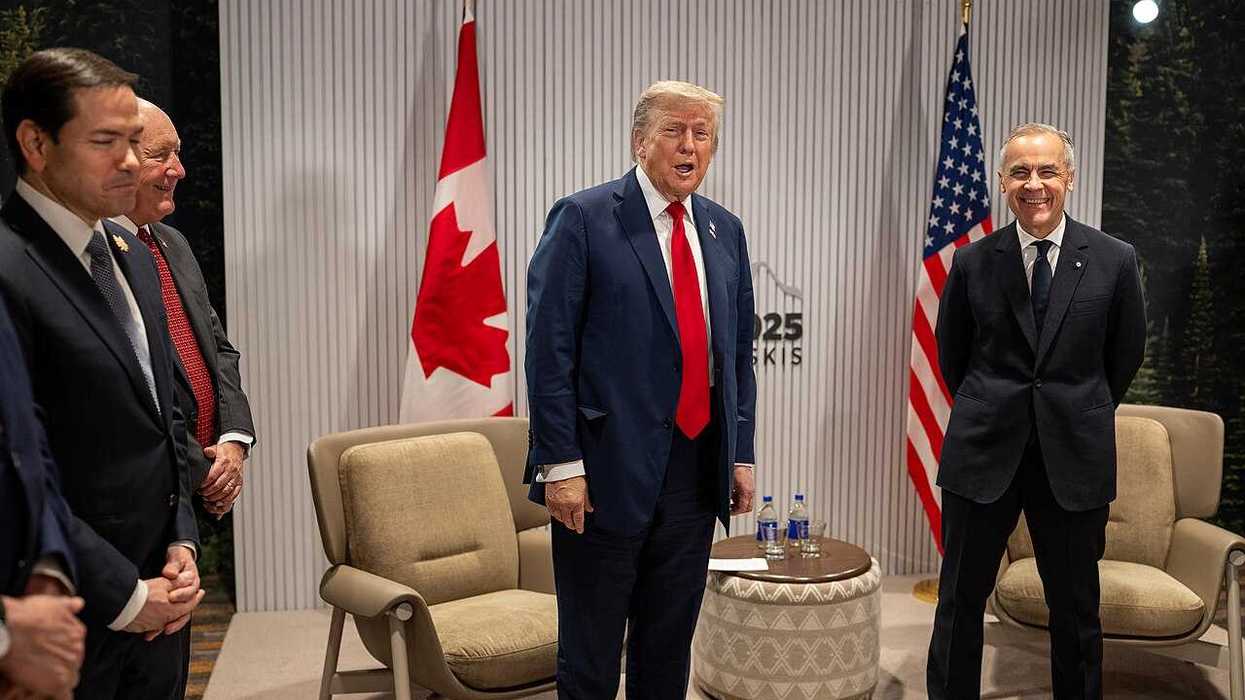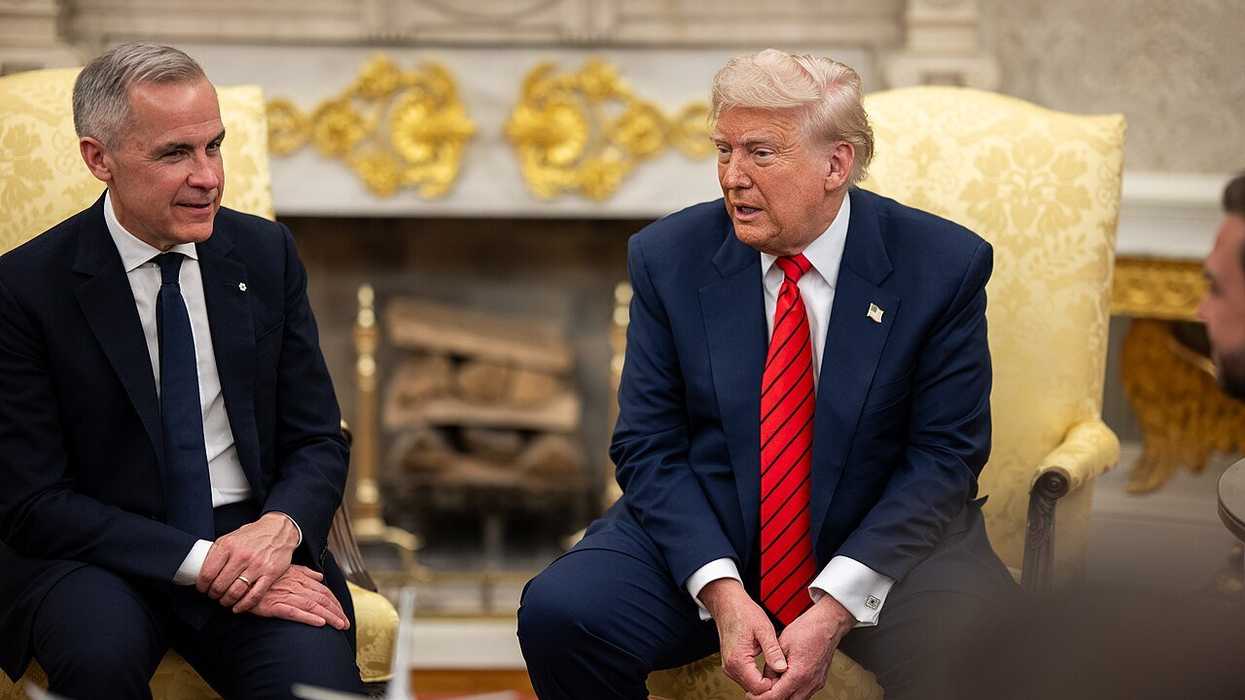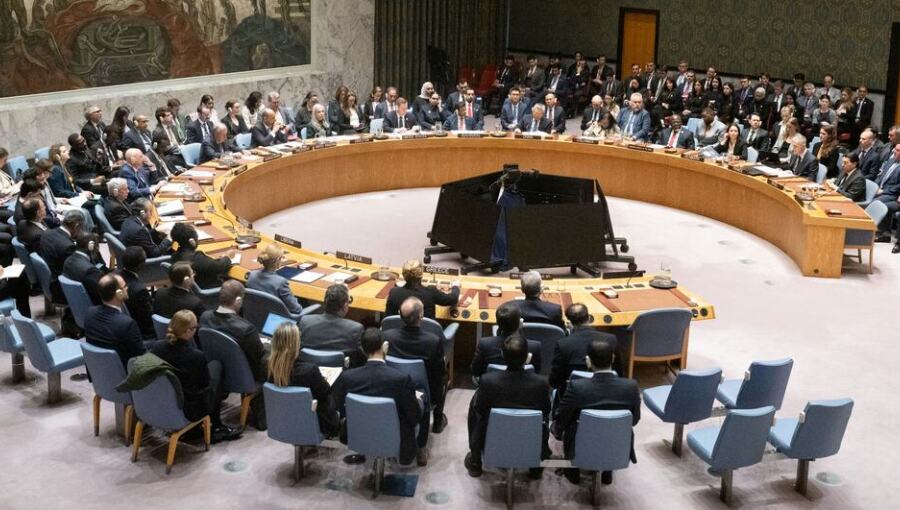By AFP
March 2, 2026

India's Prime Minister Narendra Modi (R) met with Canada's Prime Minister Mark Carney in New Delhi - Copyright AFP Joe Klamar
India and Canada on Monday reached a string of agreements, including on critical mineral cooperation and a “landmark” uranium supply deal for nuclear power, the countries’ leaders said in New Delhi.
The pacts, which also covered technology and promoting the use of renewable energy, were announced after Prime Minister Narendra Modi and his Canadian counterpart Mark Carney hailed a fresh start in the relationship between their nations.
“Our ties have seen a new energy, mutual trust, and positivity,” Modi said.
Ties effectively collapsed in 2023 after Ottawa accused New Delhi of orchestrating a deadly campaign against Sikh activists in Canada, accusations India rejected.
Carney’s visit — his first to India since taking office last year — is not only aimed to reset strained ties, but also to push efforts to diversify trade beyond the United States.
“There has been more engagement between the Canadian and Indian governments in the last year than there has been in more than two decades combined,” Carney said in New Delhi, in a speech alongside Modi.
“This is not merely the renewal of a relationship. It is the expansion of a valued partnership with new ambition, focus, and foresight, a partnership between two confident countries charting our own course for the future.”
– ‘New opportunities’ –
Energy-hungry India — the world’s most populous country with 1.4 billion people — has ambitious plans to expand nuclear power capacity from its current eight to 100 gigawatts by 2047.
“In civil nuclear energy, we have struck a landmark deal for long-term uranium supply,” Modi said, adding the countries would also work together on small modular reactors and advanced reactors.
Carney said they had agreed the launch of a “strategic energy partnership with significant potential” including CAN$2.6 billion ($1.9 billion) uranium supply agreement “supporting India’s nuclear ambitions”.
Carney added that Canada was “well positioned to contribute, as a reliable supplier” of liquefied natural gas (LNG), from its west coast.
“As India seeks access to critical minerals for its manufacturing, its clean-tech, and its nuclear plants, Canada’s resource base and world-leading companies position it as a strategic partner,” he said.
The two countries agreed last year to resume negotiations on a proposed free-trade deal, the Comprehensive Economic Partnership Agreement.
“Our target is to reach $50 billion in bilateral trade,” Modi said. “This is why we have decided to finalise a comprehensive economic partnership soon,” he added, saying it “will open new opportunities to invest and create jobs in both countries”.
– Defence deal –
Carney said he wanted to reach a deal on the “ambitious agreement” by the end of the year to “reduce barriers and increase certainty”, also said the nations were renewing security cooperation through a “new defence partnership”.
Canadian pension and wealth funds have already invested $73 billion in India.
Before Carney took office last year, Ottawa accused Modi’s government of direct involvement in the 2023 killing of Hardeep Singh Nijjar, a naturalised Canadian citizen who was part of a fringe group that advocated for an independent Sikh state called Khalistan.
Khalistan militants have been blamed for the assassination of an Indian prime minister and the bombing of a passenger jet.
India has repeatedly dismissed the Canadian allegations, which sent relations into freefall, with both nations expelling a string of top diplomats in 2024.
Ties improved after Carney took office in March 2025, and envoys have since been restored.
After India, Carney will travel to Australia and Japan — part of a wider push to broaden Canada’s economic partnerships.
Carney has made reducing Canada’s heavy reliance on the US economy a centrepiece of his foreign economic policy.
In 2024, before US President Donald Trump returned to office and upended global trade with a flurry of tariffs, more than 75 percent of Canadian exports went to the United States. Two-way trade that year exceeded $900 billion.
So far Trump has broadly adhered to the North American free-trade agreement he signed during his first term, and about 85 percent of US-Canada trade remains tariff-free.
But at the same time, Trump has also imposed painful industry-specific tariffs, and there are fears that if he scraps the broader trade deal, the Canadian economy will be hit hard.
burs-pjm/mtp
By AFP
March 1, 2026

Canadian Prime Minister Mark Carney greets Indian Prime Minister Narendra Modi at a G7 meeting last year in western Canada - Copyright AFP Idrees MOHAMMED
Abhaya SRIVASTAVA
Canadian Prime Minister Mark Carney will seek to reset strained ties and push efforts to diversify trade beyond the United States when he meets his Indian counterpart Narendra Modi on Monday.
The talks in New Delhi are expected to cover trade and investment, clean energy, defence, critical minerals and artificial intelligence, officials from both sides have said.
A major focus will be reviving negotiations for a long-discussed Comprehensive Economic Partnership Agreement.
Speaking to business leaders in Mumbai on Saturday, Carney said the planned deal, which he was looking to seal by the end of the year, could double bilateral trade by 2030.
“This visit marks the end of a challenging period, and more importantly, the beginning of a new, more ambitious partnership between two confident and complementary nations,” he said.
Carney’s visit is a key step forward in ties that effectively collapsed in 2023 after Ottawa accused New Delhi of orchestrating a deadly campaign against Sikh activists in Canada.
India’s foreign ministry said Carney’s visit marked a “significant step” in strengthening relations.
India is seeking to attract more overseas investments and says Canadian pension and wealth funds have already invested $73 billion.
Energy-hungry India — the world’s most populous country, with 1.4 billion people — hopes Canada can support its ambitious plan to expand nuclear power capacity.
– ‘Strategic partner’ –
“We can be India’s strategic partner in critical minerals for India’s manufacturing, clean tech, and nuclear industries,” Carney said.
“And India can help us double our grid with clean power by 2040.”

Canadian Prime Minister Mark Carney is in India to boost trade between the two countries – Copyright AFP Indranil Mukherjee
Before Carney took office last year, Ottawa accused Modi’s government of direct involvement in the 2023 killing of Hardeep Singh Nijjar, a naturalised Canadian citizen who was part of a fringe group that advocated for an independent Sikh state called Khalistan.
Khalistan militants have been blamed for the assassination of an Indian prime minister and the bombing of a passenger jet.
Former prime minister Justin Trudeau’s government further alleged India had directed a broader campaign of intimidation against Sikh activists across Canada.
India has repeatedly dismissed the allegations, which sent relations into freefall, with both nations expelling a string of top diplomats in 2024.
Strategic analyst and author Brahma Chellaney said Carney’s trip was “intended to close one of the most acrimonious diplomatic chapters between two major democracies in recent memory”.
“For two pluralistic democracies navigating an uncertain century, this may prove to be the most sustainable foundation of all,” he said on X.
Ties between New Delhi and Ottawa improved after Carney took office in March 2025, and envoys have since been restored.
– ‘Enormous opportunities’ –
“Building true strategic autonomy requires diversification, not isolation,” Carney said.
“It creates enormous opportunities for India and Canada to work together, to limit risks, to increase prosperity, and to build sovereignty.”
Carney has made reducing Canada’s heavy reliance on the US economy a centrepiece of his foreign economic policy.
In 2024, before US President Donald Trump returned to office and upended global trade with a flurry of tariffs, more than 75 percent of Canadian exports went to the United States. Two-way trade that year exceeded $900 billion.
So far Trump has broadly adhered to the North American free-trade agreement he signed during his first term, and about 85 percent of US-Canada trade remains tariff-free.
But at the same time, Trump has also imposed painful industry-specific tariffs, and there are fears that if he scraps the broader trade deal, the Canadian economy will be hit hard.
Carney is trying to boost commerce with Europe and Asia as a strategy to backstop Canada’s economy, should free trade with Washington collapse.
After India, Carney will travel to Australia and Japan — part of a wider push to broaden Canada’s economic partnerships.
burs-abh/mjw










.jpg)




